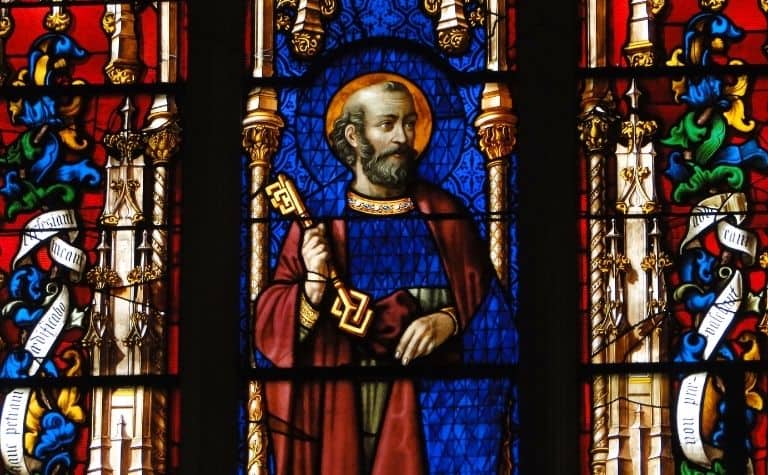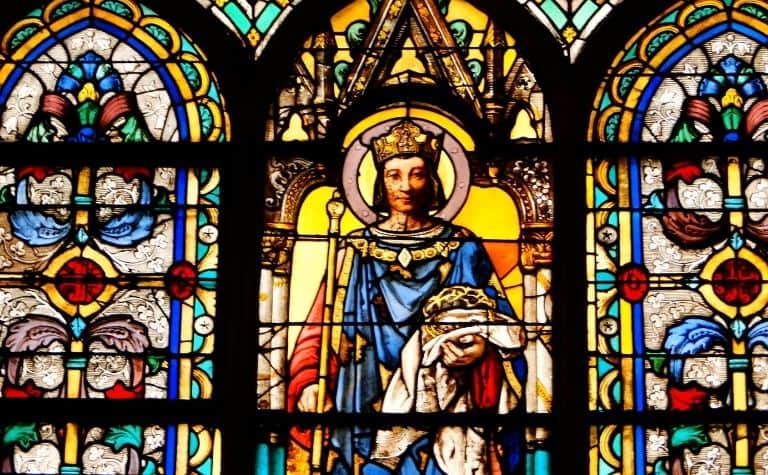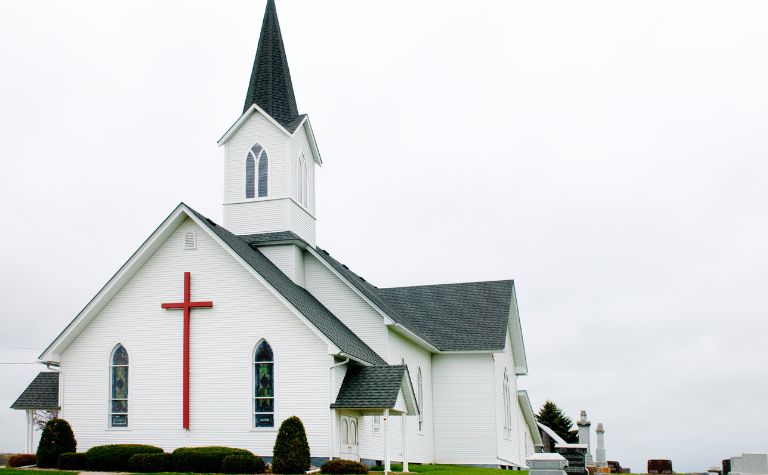All Christians believe that the gospel of Jesus Christ saves sinners and enables them to live forever, even after they physically die. Not all Christians agree about whether or not believers still living on Earth can interact with the faithful men and women who are in heaven.
Protestant Christianity contends that, according to the Bible, all believers are “saints,” whether they are alive on the Earth or in heaven. Protestantism rejects the notion that the term “saints” only refers to those people who are particularly holy who the Catholic Church has recognized.
Why don’t Protestants venerate the saints as the Catholic church does? How do Protestants interpret the Bible’s use of the term “saints”? Keep reading to learn the answers to these questions and others.

Why Don’t Protestants Venerate Saints Like Catholics Do?
Protestants honor believers that are no longer living on the Earth. They read their writings, learn from their stories, and receive inspiration from their courage and faithfulness to God.
Protestants don’t venerate the saints in the same way the Catholic church does for a variety of reasons, foremost of which is that they aren’t persuaded that the Bible teaches the doctrine. (Also see Protestants vs. Eastern Orthodox: What’s the Difference?)
| “Saints” | Protestants | Catholics |
|---|---|---|
| Are they holy and consecrated believers? | yes | yes |
| Have certain believers lived holy lives? | yes | yes |
| Should such believers be canonized? | no | yes |
| Should such believers be petitioned through the prayers of believers today? | no | yes |
| Does communicating with saints replace engagement with God? | no | it shouldn’t |
| Is attempted engagement with the deceased paganism? | some say yes, others say no | not the way the church teaches and practices it |
| Should images and relics of saints be used in worship? | no | they can be |
Protestants don’t believe the development of the doctrine of sainthood in Catholicism reflects the Bible’s teaching.
Christian historians generally agree that the veneration of saints in the Catholic church evolved from the early church’s practice of worshipping God at the gravesites of martyred believers.
Some believers in the early church eventually started to worship God at the gravesite of any believer revered for their faithfulness. (Also see Why Do Protestants Worship on Sundays?)
What distinguishes the next stage of development is the early church’s eventual use of images and relics in their meetings and services, which combined honoring believers no longer living on the Earth and worshipping God.
Most Protestants believe it’s wrong to use images of any kind during worship because it violates the second commandment about creating and using graven images (Exod. 20:3-4).
“You shall have no other gods before Me. You shall not make for yourself an idol, or any likeness of what is in heaven above or on the earth beneath or in the water under the earth.” (ESV)
Protestant theology is also strongly opposed to using relics in any fashion, which includes the corpses of believers or parts of their bodies like bones, hair, fingernails, or possessions they owned or touched.
To some, relics are memorials akin to a parent passing down a piece of jewelry to their son or daughter upon their death.
To others, however, relics contain supernatural remnants of the grace and blessing that filled the believer’s life on Earth. (Also see Protestant vs. Anglican: What’s the Difference?)
Touching or owning the possession, or caressing it during prayer and worship, is done with the hope that whatever spiritual forces the item contains will be transferred to the one soliciting blessing from the object.
Protestants believe that using relics in this way is tantamount to idolatry as the Bible defines it (cf. 1 Cor. 10:14; 1 John 5:21).

How Do Protestants Interpret the Term “Saints” in the Bible?
Protestants believe that when the Bible uses the term “saints,” it’s referring to all believers, not just those that the Catholic church has canonized as being especially worthy of veneration. (Also see 7 Symbols of Protestant Christianity)
They point out that when the Bible uses the term “saints,” it’s almost always describing believers still living on the Earth. For example,
- Romans 1:7, “To all those in Rome who are loved by God and called to be saints: Grace to you and peace from God our Father and the Lord Jesus Christ.”
- Psalm 30:4, “Sing praises to the Lord, O you his saints, and give thanks to his holy name.”
- 1 Corinthians 1:2, “To the church of God that is in Corinth, to those sanctified in Christ Jesus, called to be saints together with all those who in every place call upon the name of our Lord Jesus Christ, both their Lord and ours.”
- Ephesians 1:1, “Paul, an apostle of Christ Jesus by the will of God, To the saints who are in Ephesus, and are faithful in Christ Jesus.”
- Ephesians 4:12, “To equip the saints for the work of ministry, for building up the body of Christ.”
- Philippians 4:21, “Greet every saint in Christ Jesus. The brothers who are with me greet you.”
- Revelation 14:12, “Here is a call for the endurance of the saints, those who keep the commandments of God and their faith in Jesus.” (all quotations from the ESV)
What is the original meaning of the New Testament word for “saints”? The word translated as “saints” is hegiasmenois, which refers to people who have been sanctified by faith.
The same word is used in Acts 20:32 and Acts 26:18, where it’s often rendered as “those who are sanctified” or “those who are set apart,” depending on the translation.
Protestants contend that in the Bible, the term refers to all believers, not a certain kind of exalted leader who should be set apart from the rest and revered. (Also see Here’s Why Protestants Reject the Authority of the Pope)

Protestants Believe “Saints” Refers To Any Believer, on Earth or In Heaven
What about the verses that use the word saints to describe believers who have physically died? For example, Mathew 27:52 reads, “The tombs also were opened. And many bodies of the saints who had fallen asleep were raised” (ESV).
Protestant theology doesn’t disagree with referring to believers who have physically died as “saints,” but they don’t define the term the same way the Catholic church does.
To Protestants, “saints” refers to any believer, whether they are living or they have physically died. A “saint” is any believer, whether they live on Earth or in heaven. (Also see Why Do Protestants Worship on Sundays?)
Verses in the Bible that describe people who have physically died as “saints” don’t describe or allude to any special recognition that the church created. Such people are “saints” by virtue of their faith in Christ alone.
References:
[1] Source
[2] Source
[3] Source
Related Questions
Protestantism and Anglicanism are branches of the Christian faith that have roots in Europe. Protestantism and Anglicanism have similarities and differences with each other as well as other...
The names "Protestant" and "evangelical" both describe Christians. In some contexts, they are differentiated from each other. In other contexts, they are used as synonyms. What are the similarities...
